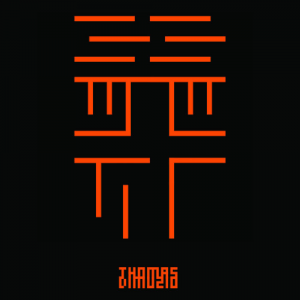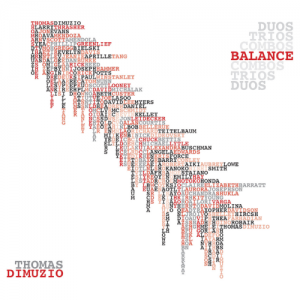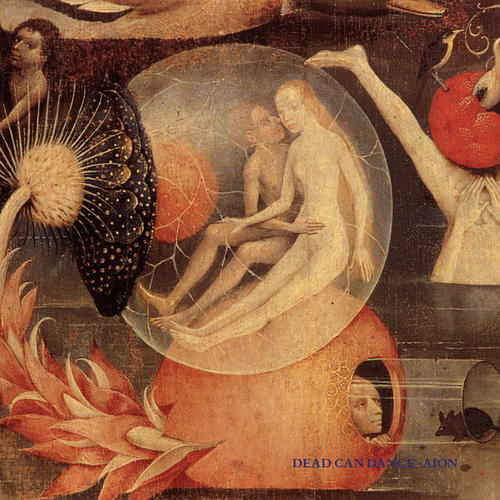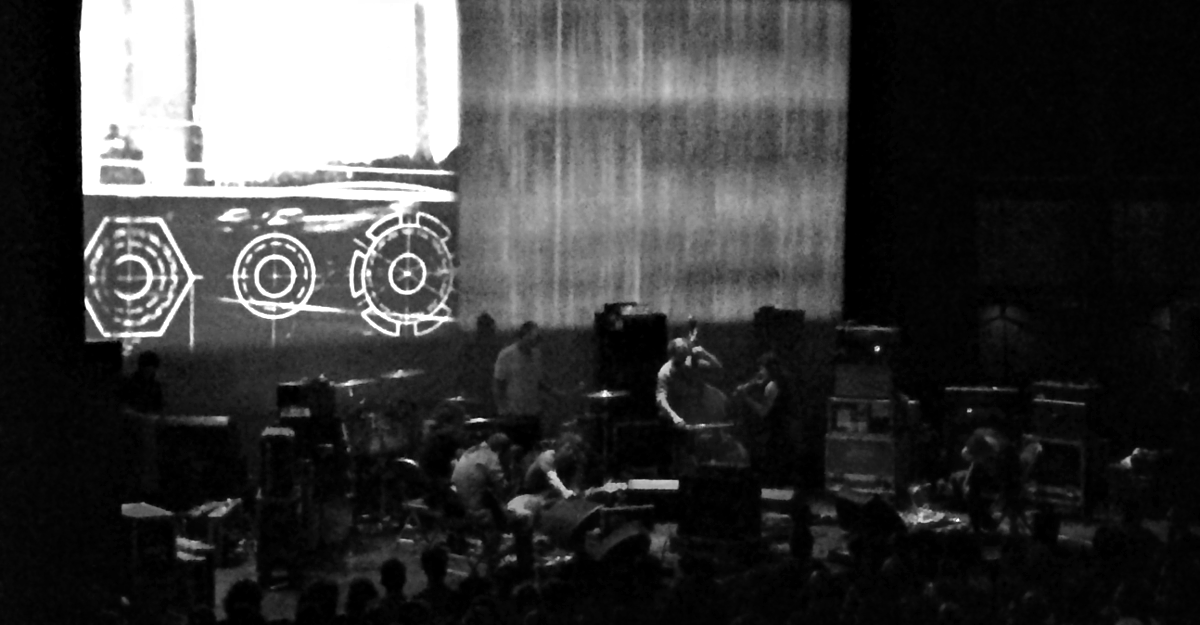 Thomas Dimuzio‘s presence in the alternative noise underground over the past thirty years or so is something that is hard to overlook. The ranks of artists with whom he has collaborated and the slew of labels on which his work has appeared are almost endless. The latest two releases from Thomas attempt to give a taster of just how varied and far-reaching his body of work is and serve as good starting points before diving in fully.
Thomas Dimuzio‘s presence in the alternative noise underground over the past thirty years or so is something that is hard to overlook. The ranks of artists with whom he has collaborated and the slew of labels on which his work has appeared are almost endless. The latest two releases from Thomas attempt to give a taster of just how varied and far-reaching his body of work is and serve as good starting points before diving in fully.
The first, Slew Tew, is a single-disc album pulling together pieces that originally appeared on various underground noise compilations going back to 2009. Clearly Thomas has a rich source of material for these kinds of instances and it is these limited-press labels that keep the spirit of the underground alive. Across thirteen tracks, you realise the full extent of what somebody can accomplish with the right assortment of equipment and a vivid imagination. The startling oscillation and machine gun feedback of opener “Scanters” really grabs your attention, the dirty beats accompanying contain the sweat and scent of an unruly dancefloor as 5,000 wild-eyed miscreants look on.
This couldn’t be more different to the kind of sense of sunscorched drama that unfolds in “NG Cycles”, its distant, faint sounds appearing as if viewed from way on high, the drama biding its time, building slowly, idling closer. The way the tension ramps on a lot of these tracks is great, and it keeps the listener glued. “Abject light” is abrasive and intrusive, with nagging voices added, while “Blown Angles Blew Angels” is more industrial, with a rise and fall of pressure and the sensation of hydraulics moving your molars. It is the huge variety of tones at work here that is miraculous. Distant groans and vivid alarms resonate on “Shoil”, while “Fog Rolls” has a sepulchral air, the whole atmosphere blurred by the sensation of incense floating through an abandoned chapel. The amount of pieces here that would serve well on soundtracks is impressive. “Tire Damage (Car Crash)” really does sound as though you can sense the appearance of lights in the rear-view mirror, edging closer and causing panic, the looseness undermining any feeling of safety. In the same vein, the hiss and crackle of warm undergrowth in “Phyllocephala” conjures up vivid itammagery of bring trapped somewhere with unknown creatures which may or may not cause harm. There is rain and abstract murmurs always increasing the tension as giant winged things attempt to approach you. It is disturbing, but ultimately involving, and that is the thing about the pieces and sounds on Slew Tew. It is not possible to ignore them; they are around you and dragging you on, sweeping you up into their little worlds. The second set is a three-disc compilation of collaborations that is nothing if not expansive. Each is sorted into duos, trios and combos, and the amount of names that appear here is huge. There must be the best part of sixty collaborators on Balance and therefore you can probably work out just how much variation there is.It is probably safe to say that as you progress through the discs, so the scope expands just due to the fact that there are more ideas being thrown into each pot. The duo disc obviously finds Thomas either going head to head or running in tandem with an array of names. Larry Thrasher brings a really subversive air to the opener “Dangerfield”, its distorted bluster and shimmering whine of heat haze is blurry and pressure-laden, while the magnetic resonance and cut up chit-chat of “Gnomon” with Bevin Kelley is more disturbing, the sound of bells cutting through road drill chatter unable to stay still.
In fact, the whole disc leaps from one risk to another. David Lee Myers‘ “Mound” is a stormy, blustering blister whereas Gregg Bielski‘s “Yesterday Died” feels more like an overture somehow, and the grandeur of the drone here is oddly welcoming. Apparitions and dazed conversation haunt Bob Bellerye‘s “Harmonic Transients”, which grows gradually more ravaged and manic as the piece proceeds. Lightness does show itself from time to time though. The lunar tones and playful air of Xopher Davidson‘s “Ideal Cycle”, with its static choir beamed in from somewhere, releases the pressure a little, as does the split-level avalanche of sounds on Lori Varga‘s “Directions From Hangar 23A”. Here, the two feel as if they are playing against one another, egging one another on to greater levels of oddly uplifting mania.Things do actually take a turn for the calmer as the disc winds down; Kris Force‘s “Shortening Of The Way” is strangely drowsy. It would be interesting to know who is doing what here as the tones press with some intensity. The closing “Collecting Particles” with David Molina is all guitar tones and deep metallic gongs. It is the most gentle sounding thing on the disc, with its gradually blurring exit lending a weary yet hypnotic air to the tail end of a dramatic hour or so; and yet there are still two more to go.
Disc two, the trios, finds the pieces generally longer and more expansive, with some tracks veering through a number of ideas before coming to rest. There are no easy rides here, although some are perhaps more subdued than others, but they are all rambling tales. There is a kind of latin section on the opener that merges with various squeals, scrapes and escaped birdsong; there is animal conversation on “To Claim The Look Of Exterminated Moons” (with Nick Didkovsky / Doctor Nerve and Richard Teitelbaum) that merges with scraped guitar and stretched strings.The selection of sounds that they cover is vast and each piece describes a new world or some distant point out of our mind’s eye. Metallic werewolves abound on “Lord Crowning Majesties” (with Alexandra Buschman / Demonsleeper and Angela Edwards / Sharkiface), while the roars, hisses and stomps of the immolating “Fluorescent Brown” (with Joseph Hammer and Rick Potts / Solid Eye) are such that you can almost feel the flames. The awkwardness and unnevenness of “Skin, String, Rump”, a Matmos collaboration, is at odds with the sweet little rhythm that appears at points. Its drift into reverie towards the end is a pleasant respite as is the wind sweeping through the wires of “Submersion” (with Aurora Josephson and Chandra Shukla / Xambuca), where the tired beat flashes like broken striplights and highlights the bare bones of memory.
I thought I could hear the sound of Krazy Kong on the final track with Barry Conley (Fugitive Pope) and Robert Aiki Aubrey Lowe, its stricken heartbeat and descent into silence is disconcerting. Some noises shock you with their sharpness and you can’t help visualising the trio as they watch one another to see who blinks first around the random bleeps and squelches.The third and final disc, involving the combos, is an even broader selection and what feels like an increase in volume as well. The selection of instrumentation is greater, with reed and voice appearing as well as guitar. There is a blare of clarinet over the deep delicious drones of “Irritable Distance (Excruciating Proximity)” (with Chuck Bettis, Nick Didkovsky and Michael Lytle / Doctor Nerve), while there is a lovely found soundscape to “Suspension If Disbelief” (with Dan Burke / Illusion Of Safety, Evelyn Davis and Jeanie-Aprille Tang / Amma Ateria), with its tinnitus ring and hidden laughter.
The feelings and atmospheres evinced here are greater as well. Tibetan bells are playful and distant on the combo with Kanoko Nishi-Smith and Moe Staiano (KaMoTo Trio) on “The Dildo Factory” (a great title), and it sounds as though someone is going through the rubbish on the tribal-vibed “Paging Rubber Chickens” with Scott Amendola and Phillip Greenlief .The breadth of imagination at play here is constantly surprising and the way that Thomas finds his place amongst the varied lineups is testament to his collaborative capabilities. The themes covered by Thomas, Scott Looney, David Michalak and Tom Nunn (T.D.Skatchit) on “‘Once Were Were” are far reaching from the rolling piano to the insistent Eastern groove, a scattering of raspberries and animal noises. Emily Hay‘s excited vocal yelp on “We Are Water” battles with the headlong tumbling guitar, while Beth Custer‘s gargling on the haunted “Night Run At Klamath Falls” is joined by Joe Lasqo on a modern classical attack of mellow piano and sax.
The scuttling alien sounds of “Always A Minefield” (with Tom Nunn and Paul Winstanley / Music For Hard Times) find you checking under the bed and Scott Amendola, Jon Evans and Ava Mendoza join Thomas for “The Talisman Of Market Street”, a final track that sees the whole collection out in a jazzy bass, guitar and drum workout — and possibly the least expected thing on here.There is something for everybody on Balance, and you will really struggle to find so many ideas stuffed into one little package. It is a lifetime of listening, and a smorgasbord of emotions and atmospheres that would provide something for any mood.
-Mr Olivetti-




